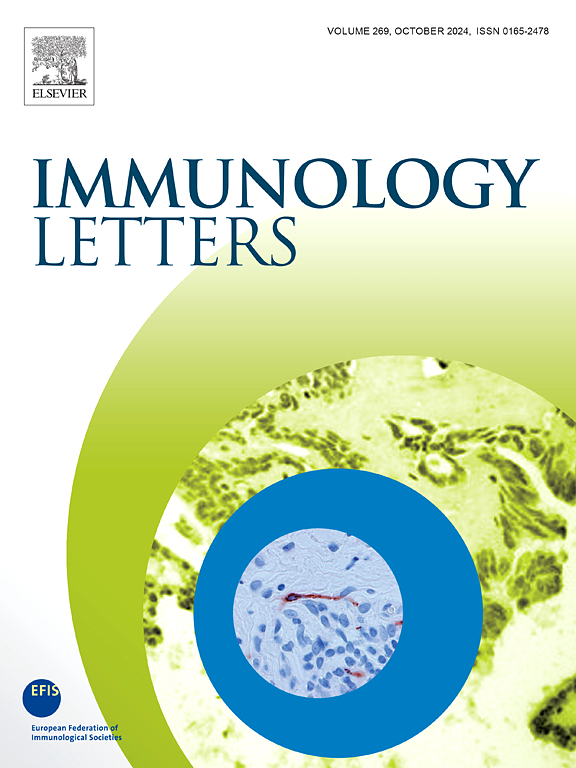植物乳杆菌的益处:从免疫调节剂到疫苗载体。
IF 2.8
4区 医学
Q3 IMMUNOLOGY
引用次数: 0
摘要
人们越来越认识到益生菌对人体健康的许多方面都有积极的影响。植物乳杆菌(L. plantarum)是一种非致病性细菌,以前称为植物乳杆菌,是发酵中常用的乳酸菌之一。植物乳杆菌的益生菌特性强调了它对人类健康的好处,如果摄入足够的量。植物乳杆菌菌株主要通过口服进入人体,改变肠道菌群并调节宿主的免疫反应;从而有益于人类健康。此外,利用植物乳杆菌作为传递粘膜抗原的疫苗载体已被证明是一种很有前途的策略。这些方面,从免疫调节到植物乳杆菌在临床前环境中的疫苗递送,在这篇综述中得到强调。沿着这些思路,构建表达B细胞多肽的重组植物乳杆菌菌株,作为未来的疫苗,通过靶向局部和远端部位过表达Her-2/ new的癌症来调节免疫并赋予抗肿瘤作用,也被提出和讨论。本文章由计算机程序翻译,如有差异,请以英文原文为准。

The benefits of Lactiplantibacillus plantarum: From immunomodulator to vaccine vector
Probiotics have been increasingly recognized for positively influencing many aspects of human health. Lactiplantibacillus plantarum (L. plantarum), a non-pathogenic bacterium, previously known as Lactobacillus plantarum, is one of the lactic acid bacteria commonly used in fermentation. The probiotic properties of L. plantarum have highlighted its health benefits to humans when consumed in adequate amounts. L. plantarum strains primarily enter the body orally and alter intestinal microflora and modulate the immune responses in their host; thereby benefiting human health. Furthermore, the use of L. plantarum as vaccine vectors delivering mucosal antigens has been shown to be a promising strategy. These aspects, from Immunomodulation to vaccine delivery by L. plantarum in preclinical settings, are highlighted in this review. Along these lines, construction of a recombinant L. plantarum strain expressing a B cell multi-peptide, as a future vaccine to modulate immunity and confer anti-tumor effect by targeting Her-2/neu-overexpressing cancers in local and distal sites, is also presented and discussed.
求助全文
通过发布文献求助,成功后即可免费获取论文全文。
去求助
来源期刊

Immunology letters
医学-免疫学
CiteScore
7.60
自引率
0.00%
发文量
86
审稿时长
44 days
期刊介绍:
Immunology Letters provides a vehicle for the speedy publication of experimental papers, (mini)Reviews and Letters to the Editor addressing all aspects of molecular and cellular immunology. The essential criteria for publication will be clarity, experimental soundness and novelty. Results contradictory to current accepted thinking or ideas divergent from actual dogmas will be considered for publication provided that they are based on solid experimental findings.
Preference will be given to papers of immediate importance to other investigators, either by their experimental data, new ideas or new methodology. Scientific correspondence to the Editor-in-Chief related to the published papers may also be accepted provided that they are short and scientifically relevant to the papers mentioned, in order to provide a continuing forum for discussion.
 求助内容:
求助内容: 应助结果提醒方式:
应助结果提醒方式:


